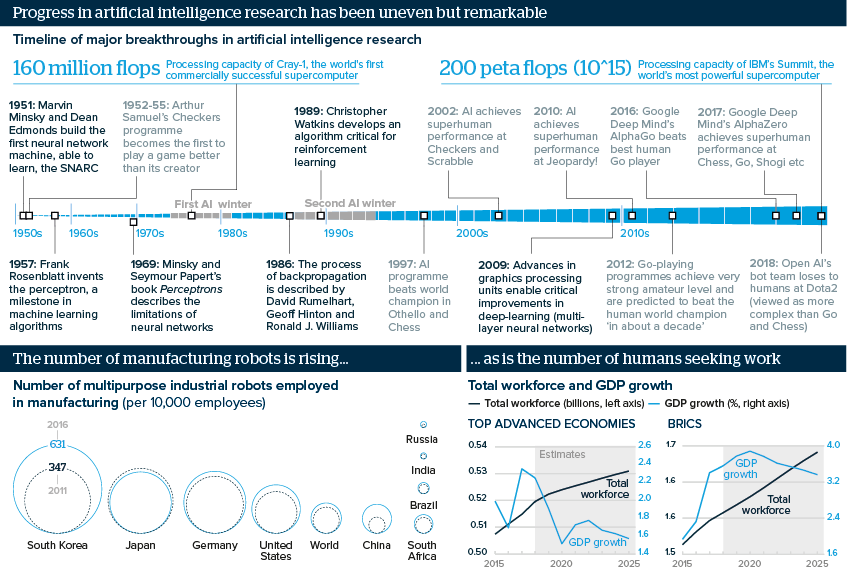Artificial intelligence revolution needs deft steering
The outcome of the artificial intelligence revolution depends on sober policies
Source: Thomson Reuters Datastream; International Federation of Robotics; Oxford Analytica
Outlook
The 21st century has seen astonishing, and some unexpectedly fast, breakthroughs in artificial intelligence (AI) research, especially machine learning, which is an important step towards artificial general intelligence. AI-enabled systems are already ubiquitous in areas ranging from health and hospitality to supermarkets and the stock exchange, with future advances guaranteed to make their adoption near-universal.
While promising to free humans from the burden of dangerous and tedious work, AI systems -- if used injudiciously -- could threaten fundamental freedoms such as the right to privacy and political free choice in democratic societies, while facilitating unprecedented suppression and surveillance in autocratic ones. Also at risk is the livelihood of millions of people, who could form a new unemployed and unemployable ‘useless class’. Yet global solutions to these global challenges are currently not in the offing.
Impacts
- Adoption of AI systems will be phased, the controversial ones being autonomous lethal weapons and those risking mass unemployment.
- A few private firms have disproportionate control over advanced AI: this threatens to concentrate economic and political power even further.
- Autonomous systems are replacing both white- and blue-collar jobs, promising to make redistribution policies the centrepiece of politics.
